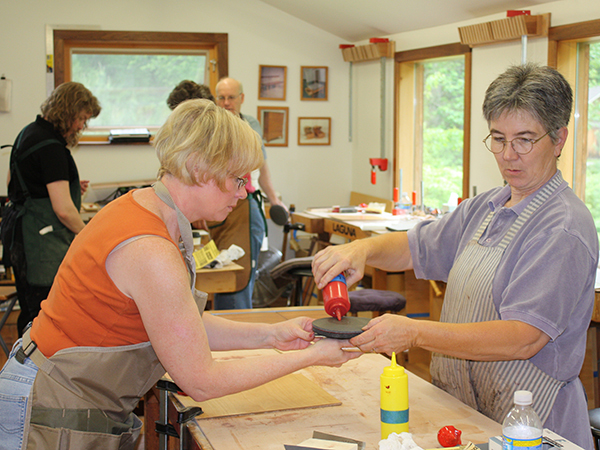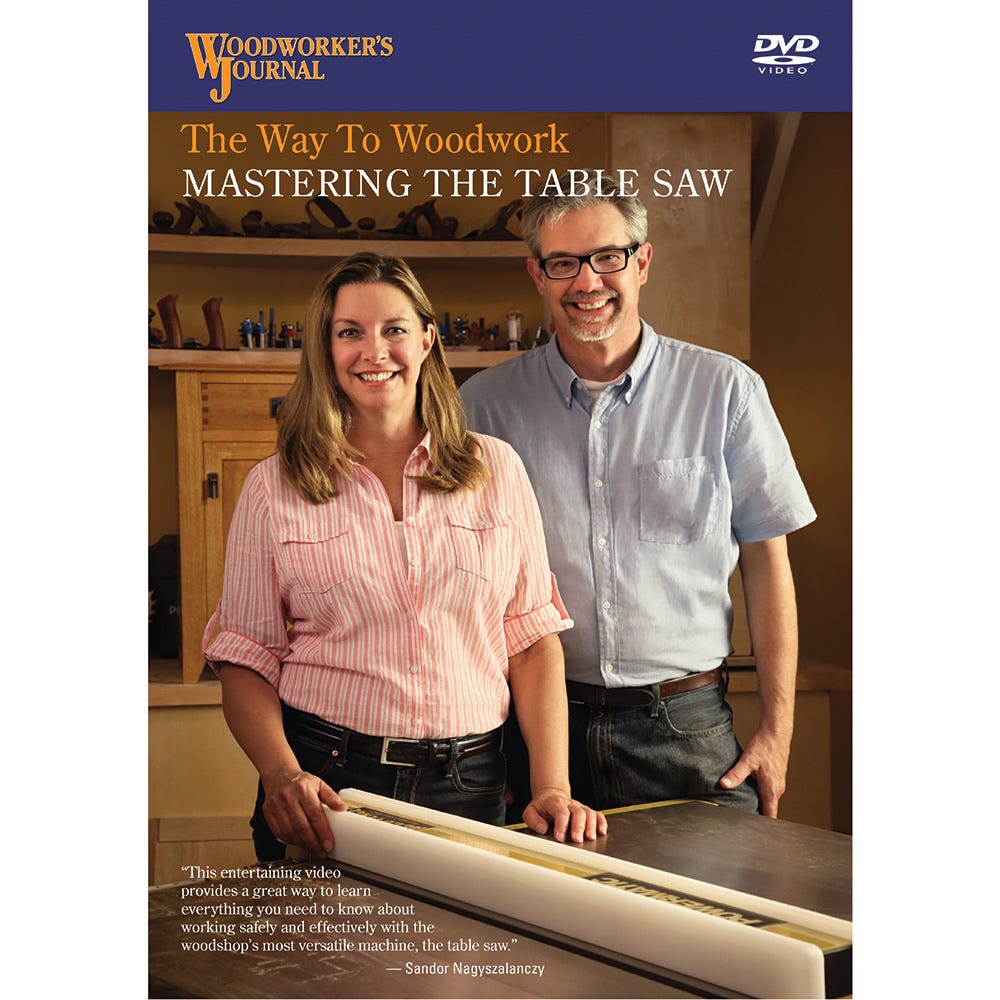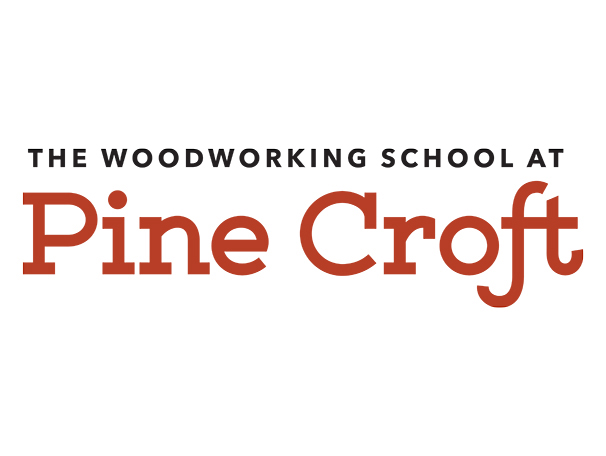
Nestled in the rural Appalachian foothills about two miles from Berea, Kentucky, the Kelly Mehler School of Woodworking had been offering world-class woodworking instruction since 2004. That was interrupted in January 2015 when Mehler was diagnosed with stage 4 cancer. He suspended the facility’s course schedule indefinitely, and its future as a woodworking school seemed uncertain.
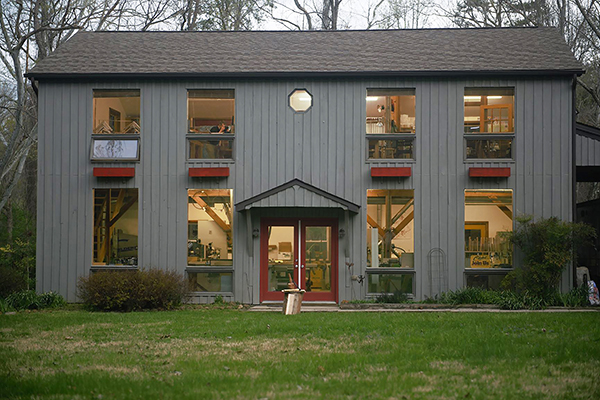
Still, in the darkest of times, hope can come from unlikely sources. Earlier this year, neighboring Berea College — a top-ranked, four-year liberal arts school and one of eight federally recognized Work Colleges in the country — stepped forward and purchased the school from Mehler, renaming it “The Woodworking School at Pine Croft.” Next month, Pine Croft will receive its first class of students who will complete a two-drawer Shaker-inspired Side Table, under the tutelage of Kelly Mehler. Then, in August, a second project-based course (a Shaker-inspired Two Drawer Peg-Leg Stand) will be taught by Pine Croft’s new head of operations, Andy Glenn — a graduate of Boston’s North Bennet Street School.
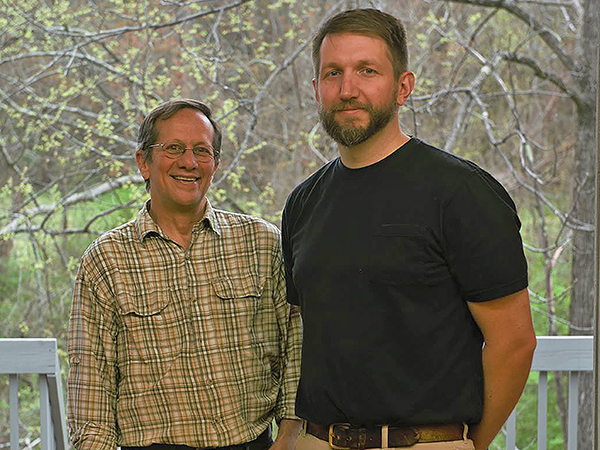
While the pairing of a private woodworking school with an accredited college may seem unusual, “there’s a natural connection between the (two),” says Glenn. “Berea College has a 127-year tradition of supporting crafts training through its labor program.”
Since its founding in 1855, Berea College has had a work component to its educational experience. It admits only academically promising students with limited financial resources, primarily from Kentucky and Appalachia. Every student attends college tuition free, and those costs are covered by contributions from alumni and other donors as well as various grants. In exchange, students work 10 to 20 hours per week among the college’s 130 departments while pursuing their course of study. One of those departments is Craft, which comprises ceramics, broomcraft, weaving and woodcraft. Glenn runs the woodcraft program. It provides machine and hand-tool woodworking training in a production shop environment. The college sells student-built furniture as a revenue source to help offset tuition costs.
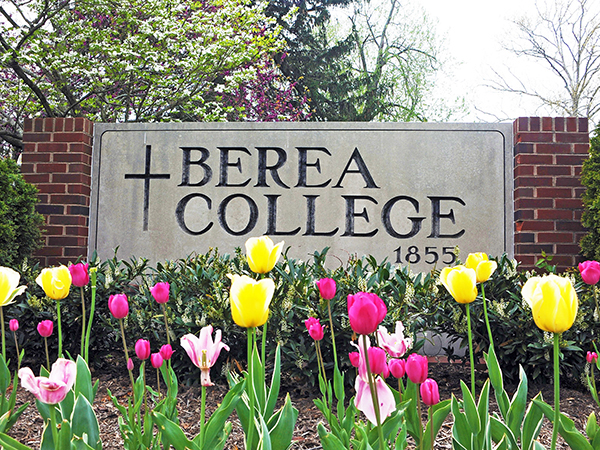
Glenn admits that his teaching role is unique. “In many ways, I’m a co-worker with the students — we are all working together to complete the projects that come through the shop … I work some at the bench, design our production pieces and custom work, continuously train our student crew and help maintain the flow of work through the shop.”
Aside from Glenn, five to seven other guest instructors will head up Pine Croft’s 2020 curriculum. That roster may also include Mehler who, Glenn says, is in full remission and doing well.
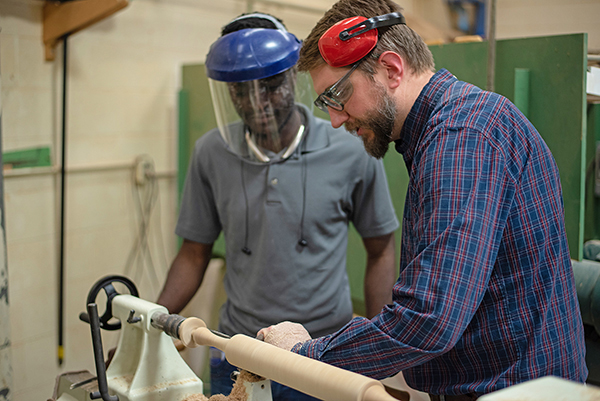
“Kelly’s been instrumental in his support and advice as we get the school up and running again,” Glenn says. “My hope is that he’ll teach whenever he’d like to and that he’ll be around as much as he’d like to be.”
At the time of this writing, only the two Shaker-project classes are slated for the remainder of 2019. Courses are tentatively scheduled to resume in April or May 2020 and will run through early autumn. A full schedule for next year should be available in mid-October, Glenn predicts, and registration for classes will begin at that time.
Initially, Pine Croft will be open seasonally and not year-round.
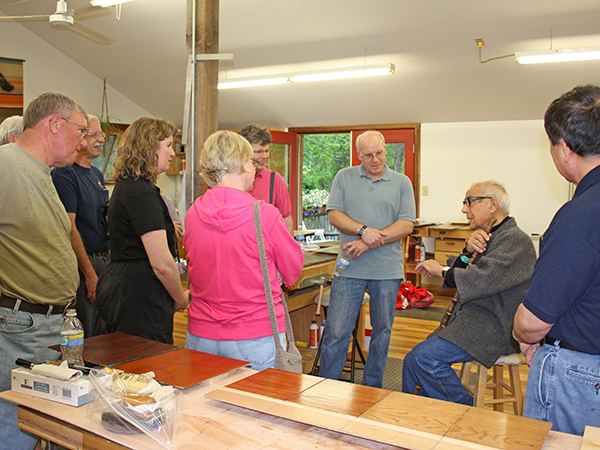
“Our plan for the first year or two will focus mostly on furniture and furniture-related skills. We’ll have classes that highlight regional designs and traditions as well as guest instructors who will bring their expertise from other regions,” Glenn says. “Kentucky has a strong furniture tradition, from works by the Shakers to distinctive Federal-style furniture to the chairmaking tradition of eastern Kentucky.”
Class sizes will be limited to 10 students or less. The school’s 2,400-square-foot building has a fully equipped machine room on the lower floor that can accommodate eight to nine students with no waiting. Eleven benches upstairs, illuminated by ample LED and south-facing window light, create a pleasant and spacious environment for hand- and power tool work and assembly.
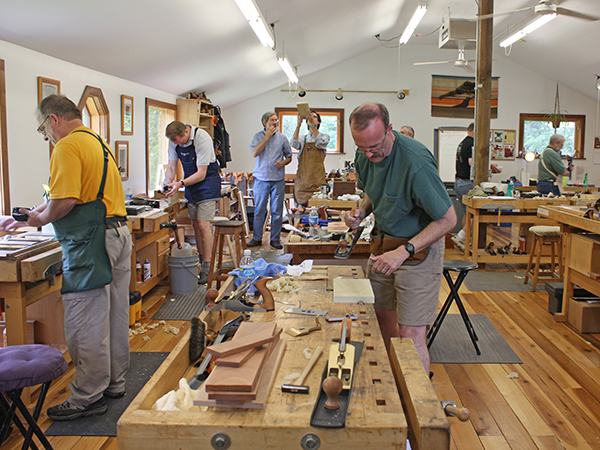
Project lumber will come from the college’s private forests, whenever possible. “Our forests have a great variety of oaks, hickories and maples,” Glenn adds. “Our green woodworking classes will use local logs, and we’re working with the (Berea College) foresters on a stool project that uses ash from local stands before the emerald ash borer decimates available stock.”
Next year’s Pine Croft season will focus on public classes, but eventually Berea College students also will have access to the facility and its instructors. Glenn is excited about the prospects of both forms of educational outreach, as well as the opportunity to rub elbows with chair makers, studio furniture makers, woodturners and whomever else may come to Berea to teach at the school.
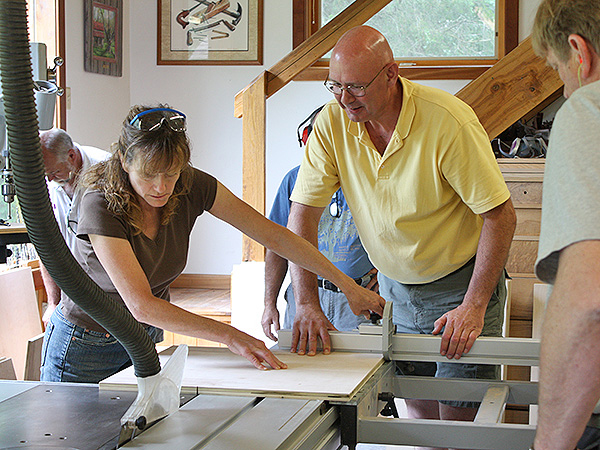
“Pine Croft is another way Berea College can support the greater crafts community as a whole,” Glenn says. “Berea College students will get to see working woodworking professionals, engage with class attendees and witness high-level craft — which I’m hoping will open their eyes as makers and provide new opportunities for them to grow as woodworkers.”
To learn more about The Woodworking School at Pine Croft, click here or call 859-985-3224.
